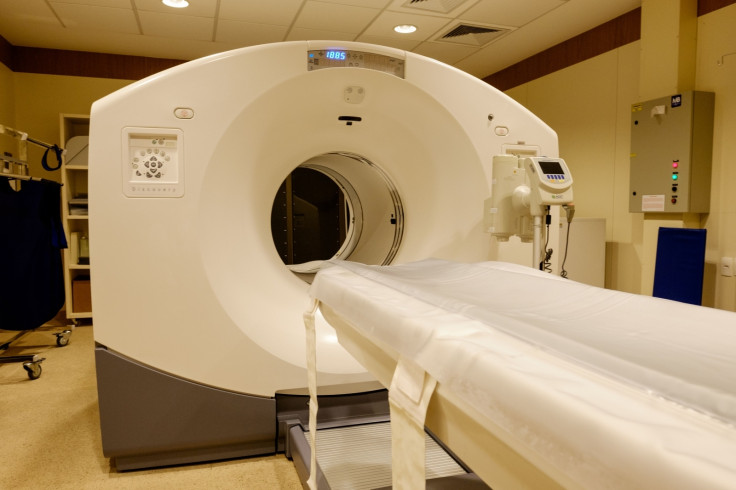UK announces £270 million lung cancer screening programme that can detect up to 9,000 cases
The UK announces a national targeted lung cancer screening programme to detect cancer earlier, save lives and promote smoking cessation.

In a significant move to combat lung cancer and improve early detection rates, the Prime Minister and Secretary of State for Health and Social Care have unveiled a national targeted lung cancer screening programme.
This initiative aims to detect cancer sooner or prevent it altogether, potentially saving thousands of lives each year. The programme, which will cost £270 million annually once fully implemented, is projected to detect up to 9,000 cases of lung cancer, provide almost one million scans and enable early treatment for those affected.
Building upon the success of the initial phase of the targeted lung health check scheme by NHS England, the rollout of the national programme will focus on individuals aged 55 to 74 with a GP record that includes a history of smoking.
Approximately 70 per cent of the screening during the pilot phase took place in mobile units strategically parked in convenient locations, such as supermarket car parks, to ensure accessibility. Furthermore, efforts were concentrated on more deprived areas where smoking rates are four times higher.
Utilising patients' GP records, the programme will identify current or former smokers within the target age group. These individuals will undergo risk assessments based on their smoking history and other relevant factors.
Those classified as high-risk will be invited for specialised scans every two years. This targeted approach is expected to significantly improve early detection rates and enable prompt intervention, increasing the chances of successful treatment.
Prime Minister Rishi Sunak highlighted the importance of the initiative, stating: "Rolling out screening to high-risk 55 to 74-year-olds will save lives by detecting up to 9,000 lung cancers a year at an early stage."
The NHS has made considerable progress in recent years, treating record numbers of cancer patients and witnessing improved survival rates. The announcement of the targeted lung cancer screening programme further solidifies the commitment to better prevention, detection, treatment and research in the fight against cancer.
In addition to early detection and treatment, the programme aims to support individuals in improving their health and reducing the risk of cancer by encouraging the utilisation of smoking cessation services. Smoking is responsible for 72 per cent of lung cancers, leading to approximately 35,000 deaths and 48,000 diagnoses each year.
Lung cancer often has a low survival rate due to late-stage diagnosis, where treatment options are limited. Early intervention has the potential to increase survival rates, with 60 per cent of people currently surviving stage one cancer for five years or more, compared to only 4 per cent at stage four.
The comprehensive rollout of the programme is estimated to make approximately 325,000 individuals eligible for their first scan each year, with a total of 992,000 scans expected annually. To support the initiative, additional radiographers will be appointed as part of the long-term workforce plan.
Individuals assessed as being at high risk of lung cancer will undergo low-dose Computed Tomography (LDCT) scans for diagnosis and subsequent treatment, if necessary. Those with negative scan results will be reinvited for further scans every 24 months until they surpass the upper age limit.
Amanda Pritchard, NHS chief executive, emphasised the importance of early identification, stating: "Identifying lung cancer early saves lives, and the expansion of the NHS's targeted lung health check programme is another landmark step forward in our drive to find and treat more people living with this devastating disease at the earliest stage."
The programme has already shown promising results, particularly in deprived communities, where more diagnoses are occurring at stages one and two. This progress not only benefits patients but also reduces the burden on the healthcare system and helps tackle health inequalities.
The national programme is set to reach 40 per of the eligible population by March 2025, with the ultimate goal of achieving 100 per cent coverage by March 2030. This comprehensive rollout aligns with the government's objective for England to be smoke-free by 2030. With the implementation of an integrated IT system and a consistent approach across the country, the programme will further enhance its effectiveness.
Leading organisations in the field of cancer research and advocacy have lauded the announcement. Paula Chadwick, CEO of Roy Castle Lung Cancer Foundation, expressed her enthusiasm, stating: "This is the news we have been waiting for. This is the day we truly begin to level up the lung cancer playing field." Similarly, Hazel Cheeseman, Deputy Chief Executive of Action on Smoking and Health (ASH), highlighted the potential for prevention, stating, "Targeted lung cancer screening with support to stop smoking at its heart will help prevent as well as treat lung cancer, still the leading cause of cancer deaths."
The announcement of the national targeted lung cancer screening programme marks a significant milestone in the UK's fight against lung cancer. By focusing on early detection and treatment, supporting smoking cessation efforts and ensuring accessibility across all communities, this initiative has the potential to save lives, improve survival rates and reduce the impact of lung cancer in the country.
© Copyright IBTimes 2025. All rights reserved.






















